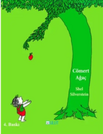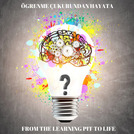
p4c Frederick adlı çocuk kitabı planı
- Subject:
- Philosophy
- Material Type:
- Lecture Notes
- Author:
- Banu YILMAZ
- Date Added:
- 05/29/2021

p4c Frederick adlı çocuk kitabı planı

Felsefi çalışmalarımız 4 oturumdan oluşur, kolaylaştırıcı öğretmen kitabı okur ve çocukları soru sormaya ve düşünmeye teşvik eder.Oturumdan sonra drama, müzik, deney, gözlem, oyun, web 2 araçları, sanat eserleri ve plan entegrasyonu çocuklar.

It is a study plan that deals with different education methods prepared for 5-6 year old students.

p4c egitim yöntemi ile gems-montessori-waldorf-stem eğitim yaklaşımlarını bir arada kullanmak hiç aklınıza geldimi. bu planlarda farklı eğitim metotlarını bir araya getirdik.

Bazen P4C olarak kısaltılan Çocuklar için Felsefe, çocuklara akıl yürütme ve tartışma becerileri öğretmeyi amaçlayan bir harekettir. Bazen "Gençler için Felsefe" veya "Çocuklar için Felsefe" olarak adlandırılan ilgili yöntemler de vardır.

This resource has been prepared to highlight a difference in education by integrating the p4c education approach with montessori. It appeals to students aged 5-6 years. in the plan; web2 game, Montessori basic skill exercises, philosophical questions are included.

Our philosophical investigations consist of 4 sessions. After reading the book, the teacher, who is the facilitator, encourages the children to think and to ask questions. After the session, activities such as art, play, experiment-observation, worksheets, drama and music are held with children, and the sessions are completed with plan integration studies.

This website is a tribute to the intellectual curiosity of young people. We know that they have
questions about all the big ideas that have engaged philosophers throughout the ages. What they
don’t have is a way to discuss those questions with other people, especially in an educational
setting.
That’s where you come in! By using this website, you’ll provide your wonderfully intelligent
and boldly inquisitive students with the opportunity to engage in a range of philosophical
discussions about issues that other students their age have told us were the most pressing ones in
their lives.
You may be wondering how you can do this without having any philosophical training. You will
be relieved to discover that teaching philosophy to secondary school children does not involve
giving lectures on the great philosophers of the past or the central problems of Western
philosophy. What is does require is that you commit yourself to giving your students the
opportunity to discuss philosophical questions among themselves.
We have tried to make this as easy for you as possible. We have created webpages devoted to
different philosophical issues that students have told us they want to discuss with their peers. On
each page, you will find a variety of different film clips. At the end of each clip, questions for
discussion appear on the screen. If you just pause the clip, you or a student can read the question
out loud to begin a philosophical discussion.
Your role is to facilitate that discussion, not tell the students what to think about anything; your
role is to assist students so that they can have a productive discussion with one another. For even
though children may be natural-born philosophers, they are not born ready to discuss issues with
their peers. That’s what we hope to help them with on this site.
Because “all” that the teacher has to do is to assist the children in their philosophical discussion,
it doesn’t require any special philosophical knowledge to teach philosophy to secondary school
children. All you need to know is how to facilitate a discussion among your students and, of
course, how to navigate this website so you know how to get to the material you need when you
need it!